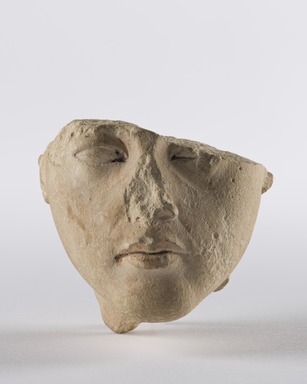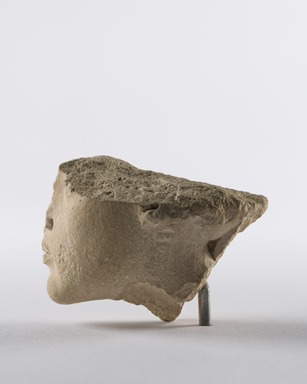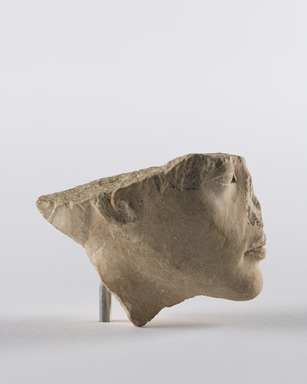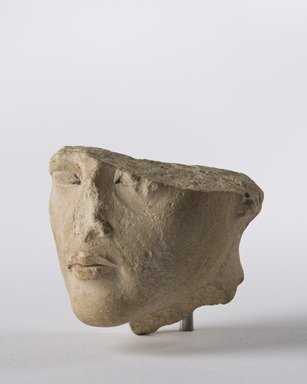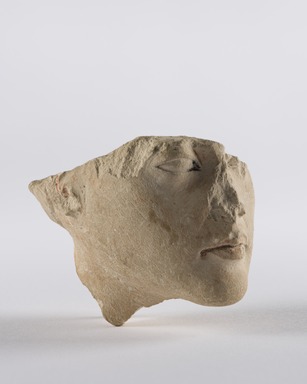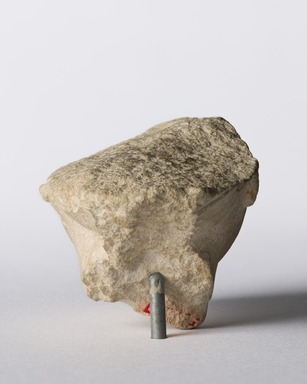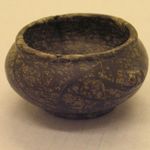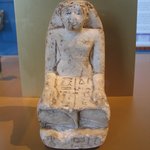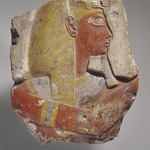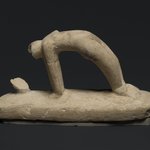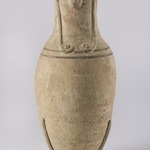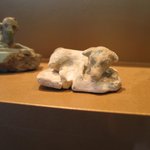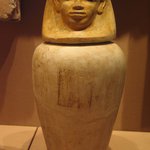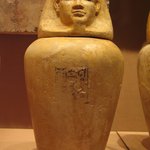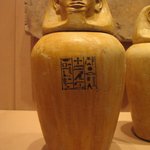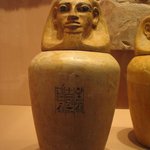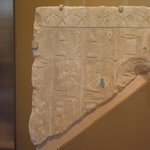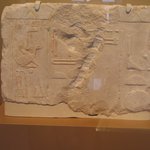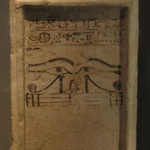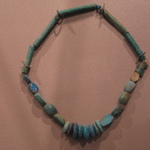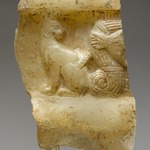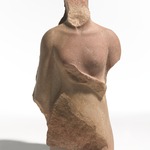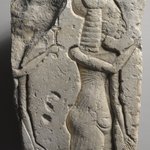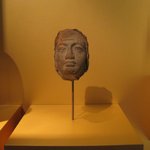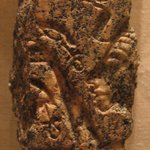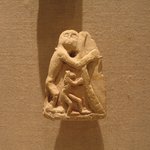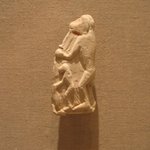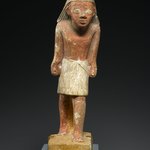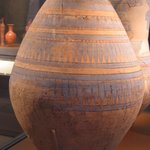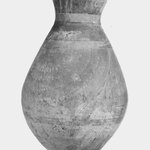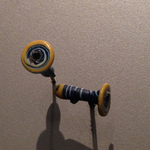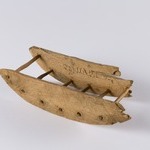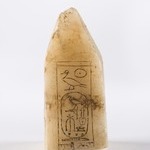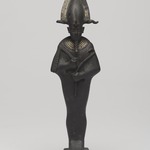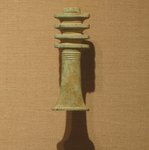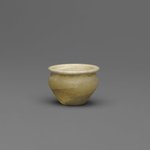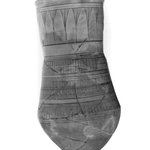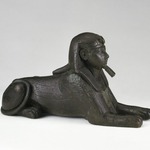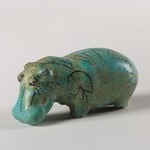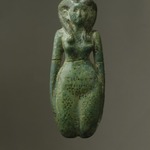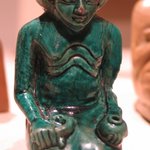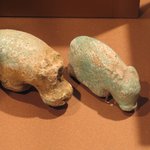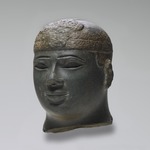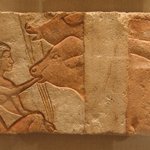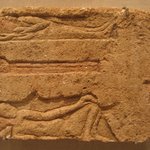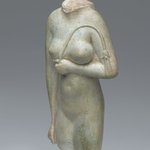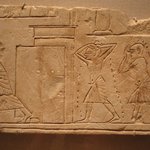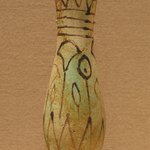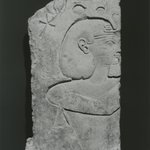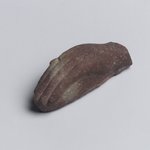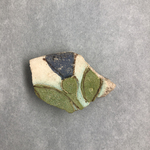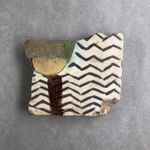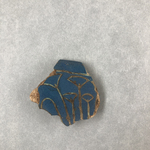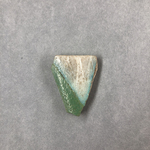Royal Head
Egyptian, Classical, Ancient Near Eastern Art
In Egyptian art, one symbol could represent both a trait and its opposite. The hippopotamus could represent great danger and chaos or, alternatively, fertility and protection in childbirth. The statuette of a male hippopotamus could represent the god Seth, who embodied danger, chaos, and disorder in the world. Yet the rare limestone statuette of hippopotami mating perhaps served as a symbol that preserved the fertility of the earth. And a necklace consisting of images of the female hippopotamus goddess Taweret could protect a woman in labor.
MEDIUM
Limestone, pigment
DATES
ca. 1352–1332 B.C.E.
DYNASTY
late Dynasty 18
PERIOD
New Kingdom, Amarna Period
DIMENSIONS
1 3/4 × 2 1/16 × 2 7/16 in. (4.5 × 5.2 × 6.2 cm)
mount: 9 × 3 × 3 in. (22.9 × 7.6 × 7.6 cm)
(show scale)
ACCESSION NUMBER
86.226.20
CREDIT LINE
Gift of the Ernest Erickson Foundation, Inc.
PROVENANCE
Archaeological provenance not yet documented, possibly from Tell el Amarna, Egypt; by 1967, reportedly acquired in Europe by an unidentified dealer; 1967, purchased in New York from an unidentified dealer by Ernest Erickson of New York, NY; 1967, loaned by Ernest Erickson to the Brooklyn Museum; 1986, gift of the Ernest Erickson Foundation, Inc. to the Brooklyn Museum.
Provenance FAQ
CATALOGUE DESCRIPTION
Fragment of lower part of royal head in white, now somewhat discolored limestone. Preserved are the right cheek, part of the right ear, the right eye, root of the nose, mouth and chin, a small part of the left eye and ear, the left cheek, part of the neck, and the lower right rear edge of the crown. Some traces of red and, in the corners of the eyes, black paint are still adhering.
Condition: Fragmentary; slight pitting on left cheek; discoloration on right cheek.
MUSEUM LOCATION
This item is not on view
CAPTION
Royal Head, ca. 1352–1332 B.C.E. Limestone, pigment, 1 3/4 × 2 1/16 × 2 7/16 in. (4.5 × 5.2 × 6.2 cm). Brooklyn Museum, Gift of the Ernest Erickson Foundation, Inc., 86.226.20. Creative Commons-BY (Photo: Brooklyn Museum, 86.226.20_front_PS22.jpg)
IMAGE
front, 86.226.20_front_PS22.jpg. Brooklyn Museum photograph, 2024
"CUR" at the beginning of an image file name means that the image was created by a curatorial staff member. These study images may be digital point-and-shoot photographs, when we don\'t yet have high-quality studio photography, or they may be scans of older negatives, slides, or photographic prints, providing historical documentation of the object.
RIGHTS STATEMENT
Creative Commons-BY
You may download and use Brooklyn Museum images of this three-dimensional work in accordance with a
Creative Commons license. Fair use, as understood under the United States Copyright Act, may also apply.
Please include caption information from this page and credit the Brooklyn Museum. If you need a high resolution file, please fill out our online
application form (charges apply).
For further information about copyright, we recommend resources at the
United States Library of Congress,
Cornell University,
Copyright and Cultural Institutions: Guidelines for U.S. Libraries, Archives, and Museums, and
Copyright Watch.
For more information about the Museum's rights project, including how rights types are assigned, please see our
blog posts on copyright.
If you have any information regarding this work and rights to it, please contact
copyright@brooklynmuseum.org.
RECORD COMPLETENESS
Not every record you will find here is complete. More information is available for some works than for others, and some entries have been updated more recently. Records are frequently reviewed and revised, and
we welcome any additional information you might have.
Why are the Wilbour Plaque and the Unidentified Queen similar?
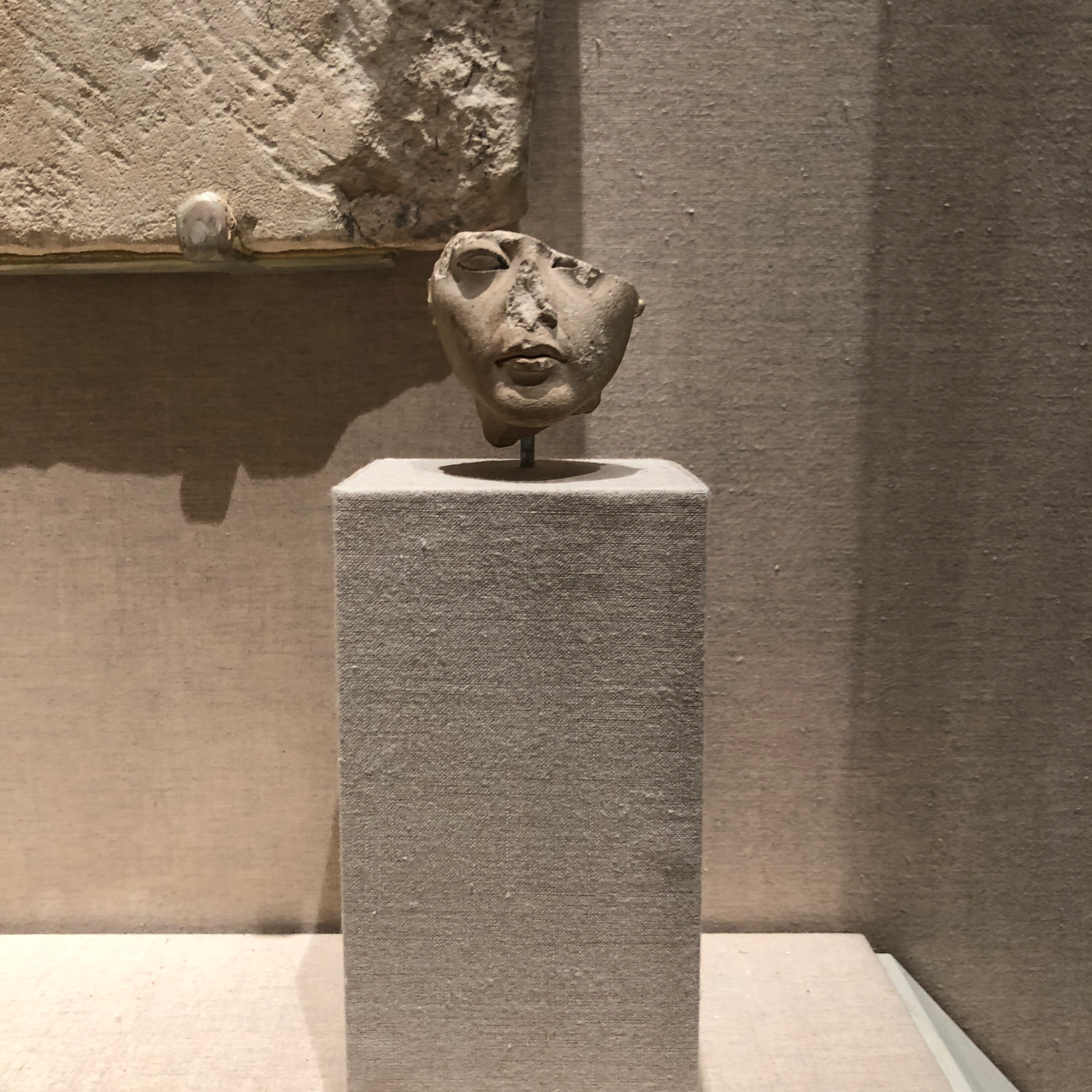
As far at the head: the similarities are because they are from the same time period. This head may even also show Nefertiti like the figure to the right in the Wilbour Plaque. You'll also want to think about what parts of the face look similar on this sculpture when compared to the Plaque.
